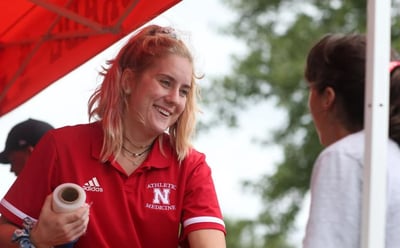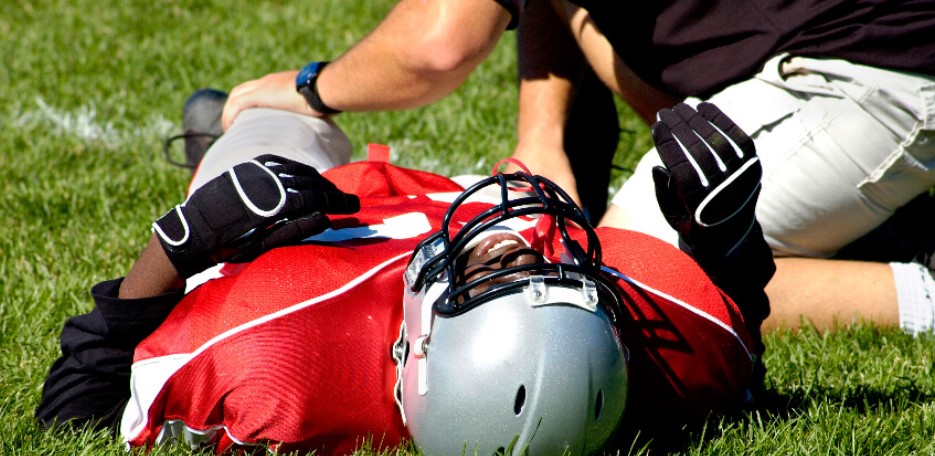The Critical Role of Athletic Trainers in Supporting Student-Athletes
 Athletic Trainers are essential figures on the sidelines of student sports, offering immediate medical care and fostering an environment of safety and recovery. These professionals not only manage injuries but also provide crucial emotional support and guidance, proving to be indispensable to the teams they serve.
Athletic Trainers are essential figures on the sidelines of student sports, offering immediate medical care and fostering an environment of safety and recovery. These professionals not only manage injuries but also provide crucial emotional support and guidance, proving to be indispensable to the teams they serve.
 Tracy Kloos experienced the importance of having an Athletic Trainer firsthand when her daughter, Mackenzie, sustained shoulder injuries during her high school basketball games. Meghan Gray, an Athletic Trainer from Meritus Health, provided expert care that kept Mackenzie's season alive. Kloos expressed immense gratitude:
Tracy Kloos experienced the importance of having an Athletic Trainer firsthand when her daughter, Mackenzie, sustained shoulder injuries during her high school basketball games. Meghan Gray, an Athletic Trainer from Meritus Health, provided expert care that kept Mackenzie's season alive. Kloos expressed immense gratitude:
“Had I not had Meghan there, Mackenzie would have had her season end at that point.”
In Nebraska, Sam Phillips, a senior gymnast, faced a challenging recovery after multiple ankle surgeries. Despite his physical setbacks, he found new ways to contribute to his team, emphasizing the broader role of Athletic Trainers in facilitating not just physical healing but also psychological resilience.
"It was a good break, honestly. I kept myself sane by adjusting my position and switching my focus from myself to the team.”
In Milwaukee, Tyler Friis works with Children's Wisconsin to provide athletic training services to Milwaukee Public Schools. Friis highlighted the proactive role trainers play:
“We're looking for how kids are moving, if a kid falls down, how they look when they're getting up. You're looking for possible signs of head injury, you're looking for kids' mannerisms.”
This vigilant oversight is crucial in preventing and managing injuries during the heat of competition.
Kat Tase, from Children's Wisconsin, further emphasized the lifesaving potential of Athletic Trainers at sporting events.
"It's extremely important to have athletic trainers at high school athletic events. There's a lot of injuries that can happen. There's a lot of really scary injuries that can happen. So having an Athletic Trainer on site for high school sports is really important."
Zach VanNostrand, now an assistant director of sports medicine at Lehigh University, also underscored the personal impact ATs have on athletes.
Reflecting on his own experiences and the relationships built through recovery, he remarked:
“We have a great opportunity to improve a pretty s—- situation. We can take those pretty low points in their life and hopefully, through what we provide, make it pretty positive.”
Athletic Trainers do more than just respond to emergencies; they actively engage in the lives and recovery processes of athletes, often building lasting relationships that extend beyond the field.
As these professionals continue to provide essential care and support, their presence remains a cornerstone of athletic programs, ensuring athletes can pursue their passions safely and recover effectively, game after game.
![HR Logo [Recovered]_Full Color Vertical-1](https://blog.healthyroster.com/hs-fs/hubfs/HR%20Logo%20%5BRecovered%5D_Full%20Color%20Vertical-1.png?width=199&height=178&name=HR%20Logo%20%5BRecovered%5D_Full%20Color%20Vertical-1.png)
 By
By


